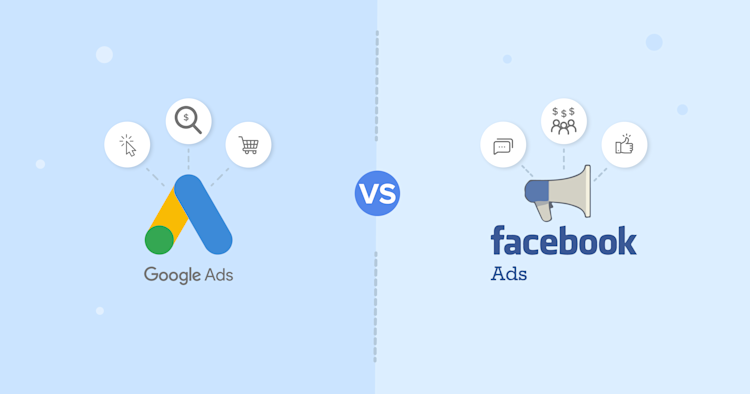Boosting revenue, expanding customer base, and building brand awareness are some of the many objectives businesses have. To achieve these, many turn to online advertising platforms such as Google Ads, formerly known as Google AdWords. But how exactly do Google Ads business goals fit into the picture, and how can they aid business owners in amplifying performance and reaching desired benchmarks?
Let's delve into the specifics of setting and optimizing Google Ads business goals. This in-depth guide will offer insights that can help businesses discern how Google Ads can drive them towards their targets.
Google Ads: A Brief Overview
Launched in 2000, Google Ads is a powerful pay-per-click (PPC) marketing platform. It allows businesses to display sponsored advertisements in Google's search results and its Network. Google Ads typically operates on a bidding system, enabling businesses to pay for high-ranking positions on Google's search engine results pages (SERPs) and other properties.
Regardless of business size, Google Ads presents its users with a plethora of options. The platform allows businesses to tailor their campaigns according to their needs, enabling them to reach potential customers based on specific demographics, locations, and behaviors. Their advanced algorithm helps identify the ideal time to show your ads to maximize reach and interaction.
Importance of Setting Google Ads Business Goals
Before deciding to invest in Google Ads, it is crucial to define business goals clearly. Setting up Google Ads business goals will serve as a roadmap, guiding businesses towards their objectives. The goals reflect the desired end results of advertising efforts, influencing the strategy, budget allocation, keyword choice, ad copy, targeting, and other vital aspects of a campaign.
Here's why defining Google Ads business goals is beneficial:
- It allows for more strategic campaign planning and implementation.
- It helps businesses measure performance, identify gaps, and readjust strategies.
- It enables strategic budget allocation following the goal priority.
A few examples of common Google Ads business goals include:
- Enhancing brand visibility.
- Increasing website traffic.
- Generating qualified leads.
- Boosting online sales.
- Encouraging customer engagement.
Tips for Setting Effective Google Ads Business Goals
There is no one-size-fits-all approach when setting Google Ads business goals; they should be tailored to the organization's unique requirements and long-term vision. Here are a few tips to keep in mind while setting these goals:
SMART Goals: Make sure your goals are Specific, Measurable, Attainable, Relevant, and Time-bound. This framework brings clarity, structure, and manageability to setting goals.
Business Alignment: The goals set in Google Ads should align with the overarching business objectives.
Periodic Review: It's vital to review and reflect on your goals periodically and make necessary adjustments depending on performance reports and business evolution.
Choosing the Appropriate Google Ads Campaign Type
Google Ads offers various types of campaigns, and each can help businesses meet different objectives. Here's a brief overview:
- Search Campaigns: Perfect for increasing website traffic and sales, they display ads on Google's SERP.
- Display Campaigns: Ideal for boosting brand awareness, these place ads across Google's Display Network, including Google partner websites and apps.
- Shopping Campaigns: These promote your online and local inventory, leading to increased sales.
- Video Campaigns: Excellent for engaging with customers, these allow businesses to run video ads on YouTube and other Google Display Network sites.
Frequently Asked Questions about Google Ads Business Goals
Which Google Ads Business Goals Should I Choose for My Campaign?
The choice of Google Ads Business Goals largely depends on your specific marketing objectives. If you're looking to increase calls to your business or drive more sales on your website, the "Leads" goal could be your best bet. If your focus is more on growing foot traffic to your physical location, the "Store visits" goal would be more appropriate. By accurately identifying your priorities, Google Ads can better facilitate meeting your business goals.
How Can I Optimize My Google Ads Campaign to Meet My Business Goals?
Google Ads equips you with various tools to help optimize your campaign based on your business goals. You can start by taking a strategic look at your keyword selection, bid amounts, and targeting settings. Making necessary adjustments based on the analytics data Google Ads provide will help you refine your campaign over time. Remember, addressing negative keywords, using ad extensions, and optimizing your landing page also play an important role in running a successful campaign that aligns with your business goals.
How Does Google Ads Business Goals Support My Online Marketing Strategy?
Google Ads Business Goals are designed to help you create more effective marketing campaigns by aligning your ad placements with your business objectives. They enable Google's algorithms to optimize your ads and enable you to reach the right prospects at the right time. By tailoring your ads' visibility based on your chosen business objectives, Google Ads Business Goals can play a key role in enhancing your overall online marketing strategy.
Is It Possible to Set Multiple Google Ads Business Goals for One Campaign?
Google Ads allows you to set one main goal per campaign. This streamlined approach helps keep the campaign focused, and the ad algorithm optimized for that specific objective. However, it's important to note that although you can only set one main goal, this doesn't limit your ability to track other key performance indicators. You can monitor multiple metrics to gain extensive insights into your campaign’s performance.
How Do I Track My Google Ads Business Goals?
Tracking your Google Ads Business Goals is made easy with the reporting and analytics features built into Google Ads. The platform provides detailed data on how your campaigns are performing in relation to your goals. Google Analytics, in combination with Google Ads, can also provide more comprehensive insights about your website traffic and user behaviors.
Can I Change My Google Ads Business Goals Midway Through a Campaign?
Yes, you can change your Google Ads Business Goals at any time. However, it's important to consider that constantly changing your goal in the middle of the campaign can lead to inconsistent results. It's recommended to monitor the campaign performance for some time before deciding to make any major changes.
How Can Google Ads Business Goals Impact My Budget?
Google Ads Business Goals can dictate the approach taken to manage your budget. Each goal might require different bidding strategies, keywords selection, and target audiences which could affect your overall expenditure. Google Ads offers the flexibility to adjust these parameters so you can always stay within your budget while aiming to achieve your business objectives.
How Often Should I Review My Google Ads Business Goals?
The frequency of reviewing your Google Ads Business Goals is contingent on many factors, including the duration of your campaign, business dynamics, and the competitiveness of your industry. Generally, it's advisable to review your progress towards your business goals at least once a month. Regular reviews can help you identify trends and make necessary adjustments for optimal results.
Pros of Google Ads Business Goals
Broad Reach
Google Ads allows businesses to reach a wide spectrum of people on the internet. With Google's vast network, your ads have the potential to be seen by millions of internet users. This broad reach can lead to increased brand exposure, leads, and sales.
Targeted Advertising
Google Ads enables businesses to place their products or services in front of the people who are most likely to be interested in them. This is done through keyword targeting, location targeting, and demographic targeting. For instance, if you are selling winter coats, you can target people searching for 'winter coats' in colder regions. This targeted advertising can lead to higher conversion rates and a better return on investment (ROI).
Measurable Results
One of the greatest advantages of using Google Ads is that you can measure the performance of your ads. It provides data on impressions, clicks, conversions, and other important metrics that can help you assess whether your ads are reaching their intended target and how effective they are at driving desired actions. These actionable insights can guide your decision-making process and help you optimize your ads for better performance.
Speedy Results
Unlike organic SEO which may take months to see results, Google Ads can deliver speedy results. Once your ad campaign is set up and approved by Google, your ads can start running and appearing in search results immediately. This can be especially beneficial for businesses that are looking for quick wins or those that are launching time-sensitive campaigns.
Flexibility
Google Ads offers flexibility in terms of budget, bidding strategies, ad formats, and features. You can start with a small budget and increase it as you see positive ROI. You can choose from a variety of ad formats (such as text ads, image ads, video ads, and shopping ads) and features (such as ad extensions) to create ads that align with your business objectives.
Improved Local Search Presence
For local businesses, Google Ads can be an effective tool to boost their local search presence. Through Google Ads, local businesses can target ads to their specific geographical location, which can help them attract more local customers and stay competitive in their local market.
Cons of Google Ads Business Goals
Can Be Expensive
While Google Ads can be cost-effective when well-managed, it can also become expensive, especially for highly competitive industries where there is high competition for keywords. If you're not careful with your budget and bidding strategy, costs can quickly escalate.
Requires Constant Monitoring and Optimization
To get the most out of Google Ads, it requires constant monitoring and optimization. You need to continuously assess your campaign performance, make necessary adjustments, test new keywords, and experiment with different ad formats and features. This can be time-consuming and require a lot of resources, especially for small businesses.
Not Guaranteed Success
While Google Ads has the potential to drive traffic, leads, and sales, it does not guarantee success. Even with a well-planned and well-executed campaign, there's always a risk that your ads may not resonate with your target audience, or that they may not lead to the desired actions. It may take a lot of testing and tweaking before you see significant results.
Complexity
Google Ads platform can be complex for beginners to navigate. There are many settings, features, and tools to learn and understand. It also requires a good understanding of PPC advertising, keyword research, and digital marketing concepts. Without proper knowledge and expertise, you could end up making costly mistakes.
Dependency
Relying too heavily on Google Ads could create a dependency which might not be sustainable in the long term. Ideally, businesses should strive for a balanced marketing mix, combining both paid and organic strategies. If Google were to change its algorithm or policies, businesses that overly rely on Google Ads might be negatively impacted.
Ad Relevance Issues
Sometimes, Google's keyword matching can lead to ads appearing in irrelevant search queries, leading to wasted ad spend. For instance, if you are selling 'apple laptops', you may not want your ad to appear when someone searches for 'apple fruit'. Even though you can use 'negative keywords' to exclude certain search queries, it requires regular monitoring and updating to make sure your ads are always reaching the most relevant audience.
Summary
So there you have it! Google Ads Business Goals are not just about increasing online traffic or lead generation. They are about aligning your digital advertising strategies with your overall business objectives. Whether you want to boost sales, raise brand awareness, or drive in-store visits, Google Ads equips you with the right tools and insights. The magic here is in customizing and optimizing your ad campaigns to achieve these specific goals.
The world of Google Ads Business Goals is as vast as it is dynamic. You can experiment with different types of ad formats and bidding strategies. But remember, the success of your ads doesn't simply depend on high visibility or good click-through rates. It requires a comprehensive understanding of your target audience and the ability to deliver relevant and impactful ad content. That's how you make the most of this platform and unlock real business growth.
And finally, keep in mind that mastering Google Ads Business Goals is not a one-size-fits-all deal. It's a continuous learning process that demands time, patience, and practice. But with a clear roadmap defined by your business objectives, informed decisions guided by data analytics, and a persistent approach to testing and improvement, you'll soon become a pro. Happy advertising with Google Ads!
About WebPerfex
WebPerfex is a quintessential dynamic team of digital marketing whizkids and design enthusiasts, based in the beautiful city of Sacramento, CA. We pride ourselves in being the wizards behind the scenes, transforming the digital presence of businesses across the world. Our talented crew includes web-design mavens, SEO gurus, and seasoned marketing strategists who boast extensive experience and a proven track record in their respective fields. Simply put, we love what we do - crafting visually stunning, SEO optimized, & highly converting websites. It’s our passion to stay tuned with the latest digital trends and deliver the best to our clients. So, if you're looking to ramp up your online presence, remember, we are just a click away!




